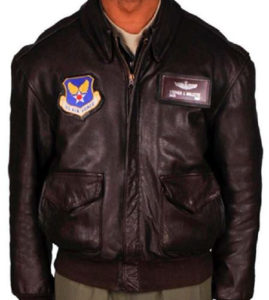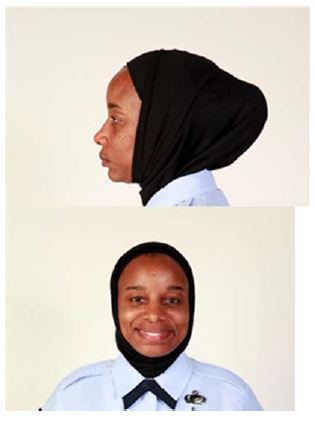Air Force Accommodates Religion in Updated Regulation
 Last week, the US Air Force quietly published an update to its uniform regulation, AFI 36-2903, Dress and Personal Appearance of Air Force Personnel, which governs how Airmen are required to wear their uniforms. The new regulation included attachments that specifically covered turbans, hijabs, and beards for the first time. While AFI 36-2903 previously discussed “religious apparel,” this is the first time it was covered in such depth.
Last week, the US Air Force quietly published an update to its uniform regulation, AFI 36-2903, Dress and Personal Appearance of Air Force Personnel, which governs how Airmen are required to wear their uniforms. The new regulation included attachments that specifically covered turbans, hijabs, and beards for the first time. While AFI 36-2903 previously discussed “religious apparel,” this is the first time it was covered in such depth.
In addition, it prioritized accommodation Air Force wide. For example, previous versions often restricted accommodation — if it was even granted — to a single military installation.
The new regulation also lowers the level of approval required for some accommodations. For example, Wing Commanders (generally, the commander of the Air Force base) are authorized to approve
hijab, beard, turban or under-turban/patka, unshorn beards, unshorn hair, and indoor/outdoor head coverings.
Importantly, however, if the commander desires to disapprove that accommodation, the request has to be disapproved at AF Headquarters at the Pentagon.
Again, it is admirable that the Air Force is presuming the priority of religious exercise — it is more difficult to deny than it is to approve.
 This is just the latest update to military religious freedom in the past few years, a wave which largely started just prior to 2013. In response to Michael “Mikey” Weinstein’s incessant attacks on Christians in the military, religious liberty groups convinced Congress to include religious exercise protection language in the NDAA. As a result the Department of Defense modified DoDI 1300.17, Accommodation of Religious Practices Within the Military Services, prioritizing religious accommodation.
This is just the latest update to military religious freedom in the past few years, a wave which largely started just prior to 2013. In response to Michael “Mikey” Weinstein’s incessant attacks on Christians in the military, religious liberty groups convinced Congress to include religious exercise protection language in the NDAA. As a result the Department of Defense modified DoDI 1300.17, Accommodation of Religious Practices Within the Military Services, prioritizing religious accommodation.
While those same congressmen noted the military is focused a bit too much on uniforms — and not the exercise of religion the change was meant to address — the response to the wave of improvement has generally been positive, because improving religious liberty for one group improves it across the board. A rising tide lifts all boats.
And that is also why Weinstein — a self-proclaimed yet self-contradictory advocate of religious freedom in the US military — has been virtually silent on these actual, measurable improvements in religious liberty. Weinstein knows that by permitting Sikhs to wear beards and turbans, and allowing Muslims to wear beards or hijabs, the US military is also protecting the religious liberty of Christians in the US military, which is something he opposes.
After all, how can Mikey Weinstein demand a court-martial for a military officer who says “I am a Christian” (which he’s done) when the US military allows troops to outright modify their uniforms to let the world know “I am a Sikh” or “I am a Muslim”?
[Weinstein] voiced concern, however, that changes that allow for more overt religious apparel could be used by individuals to proselytize or push their religion on others.
And how many times has Weinstein complained that a Sikh, Muslim, or Jew in the US military has “pushed their religion” on someone by virtue of their subordinates knowing their faith? That’s right: zero times.
Allowing religious exercise in the US military says nothing about the truth claims of that religion, nor does it function as a government endorsement of that religion. Christians, for their part, desire only the same freedom everyone else has. And that has Mikey scared.
Later published at FoxNews.
ADVERTISEMENT